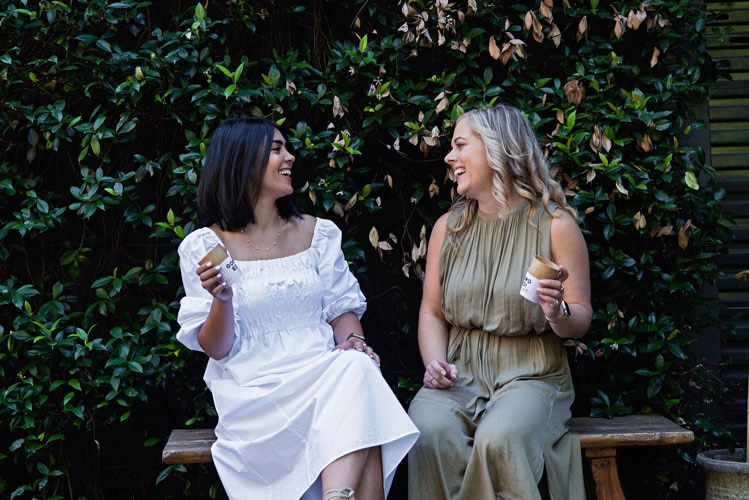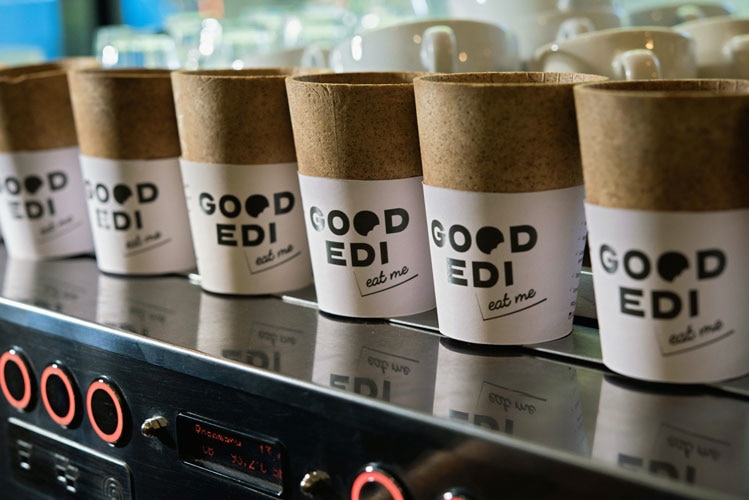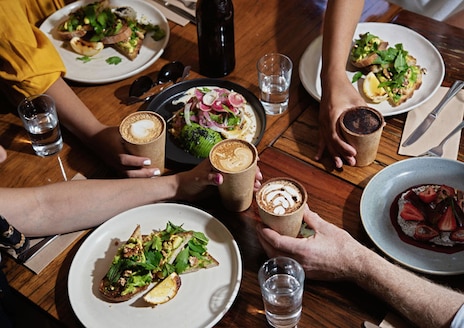This month, we spoke with Catherine and Aniyo, co-founders of Good Edi, to talk about their ground-breaking innovation in the war against single-use coffee cups
Welcome back to Better TLKS: A Swedish Sustainability Series. From our roots in Sweden to our over 100-year history of designing premium products that help people live better at home, this series will spotlight leaders and pioneers in the sustainability space, much like us, to uncover their sustainability journey and help inspire you to live a more considered life.
Did you know each year in Australia 1 billion takeaway cups are sent to landfill? This month, we’re talking to Catherine Hutchins and Aniyo Rahebi, co-founders of Good Edi, the zero-waste edible coffee cup aiming to tackle the problem that comes with Australians’ love for coffee.
Catherine and Aniyo first met when they were working together in the food processing industry, deciding to take their 20 years of experience to do some good. Here, we talk to the power duo about their journey to creating a zero-waste coffee cup and what inspires them most about sustainability.
Q & A with Catherine and Aniyo
1. Firstly, what does sustainable living mean to you?
For us at Good Edi, we really try to have a very holistic approach and look at the full value chain of a product - what happens from where you source everything down to the manufacturing until the end of life of a product.
This is why we sourced everything locally - we manufacture our crops here in Melbourne, we are plastic-free, and we really believe what happens to our product after it’s consumed is the best thing that can happen at the end of a product’s life.
Ultimately, sustainability for us means doing the right thing for the product that you're creating, for the business that you're running and ensuring what we’re doing is good for the planet and good for the people.
2. Electrolux is a Swedish brand. What about Swedish cuisine or ways of living do you admire or feel most inspired by?
I [Aniyo] actually lived in Sweden for two years and did my masters there. I love the culture and the way that everything is very simple and very genuine, which has influenced me throughout my life and career. There are a lot of things that you see that are embedded in their culture, for example, I remember the way they were recycling back then [in 2008] is much more progressive than in Australia, even today.
The Swedish have been thinking about the environment from so early on that it’s now normal practices they have on a day-to-day basis, like second nature. I remember having six different bins, nothing could be mixed, and everything needed to be recycled. At every supermarket, you could dispose of recyclable items and get a refund for everything you were disposing of. They’re at least 10 years ahead of where Australia is in terms of waste management.
3. In your industry what are the biggest sustainability challenges?
There are a few challenges in our industry but one of them is certainly the infrastructure around sustainability. For example, as a business, if you want to be sustainable in everything that you do, which was our aim, there are very limited resources that you can use.
Plastic packaging is also a big issue in the food industry. It’s accessible, cheap and available in high volumes which makes it an easy pathway for a lot of businesses, and therefore consumers. Our passion remains in the sustainability pool so bringing a waste-free, plastic-free and locally sourced option to help Australians be more sustainable every day was really a no-brainer for us.
4. What was the inspiration behind launching Good Edi?
We have both always been passionate about sustainability and new business ideas. We realised that one of the biggest problems with our cities, especially in Melbourne, is our high level of consumption of coffee, and therefore the use of coffee cups. So, one day we were just looking at these piles of coffee cups in the bin and thought, why don’t we do something about the disposable cup problem?
Initially, we hadn’t thought of an edible coffee cup, but after a lot of research and brainstorming and we concluded the only thing that is truly waste-free is something that you can eat. And that's how the idea of an edible cup was born.
5. What is coming up for you in 2023?
We currently only supply to Australia so we’re really looking forward to scaling the business up and taking Good Edi global. Currently, we’ve sold 200,000 coffee cups so far, and counting but our biggest ambition is to get that number to 18 million per year. It’s ambitious, but we know we can do it.
If you want to follow along on their journey, head to their Instagram or Facebook pages.





